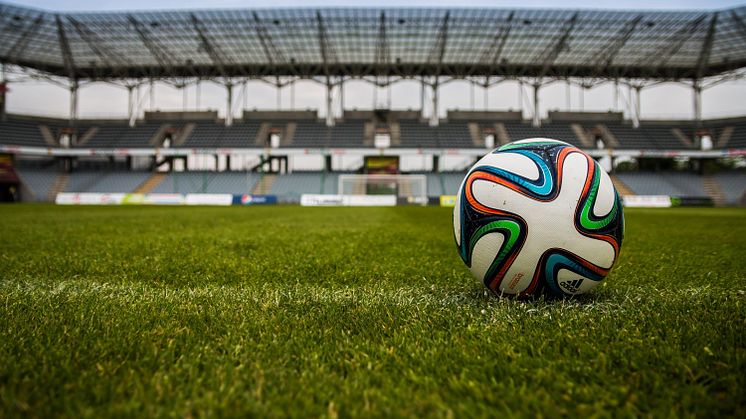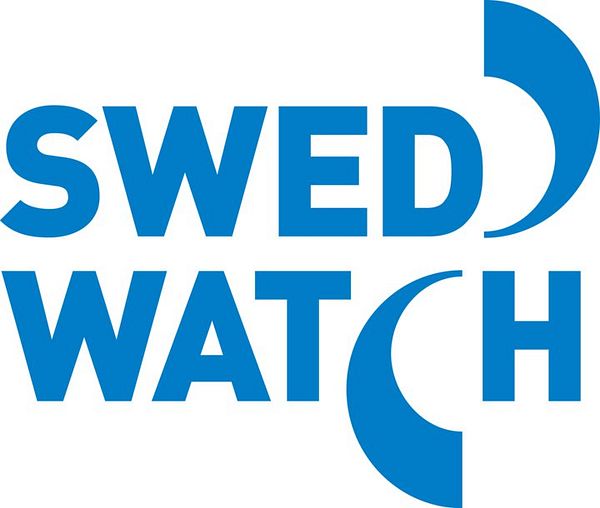
Pressmeddelande -
“Caught Offside” - New Swedwatch briefing calls on sport sponsors to uphold human rights
Companies that use sport sponsorships to advertise their products or services have an important role to play in preventing and mitigating human rights impacts. In a new briefing, Caught Offside: The role of sport sponsors in upholding human rights, Swedwatch urges these companies to learn lessons from the World Cup in Qatar by incorporating human rights in future sponsorship agreements. The briefing also contains testimonies from Bangladeshi migrant workers who tell the story of their migration experience in Qatar and the difficulties they faced.
-It is deeply disturbing to observe that so many companies have been profiting from the World Cup in Qatar at the expense of the well-being of migrant workers. This is a tragedy that must not be repeated, says Olof Björnsson, researcher at Swedwatch and author of the briefing.
One of the testimonies in the briefing comes from Mominul. When he migrated to Qatar he was just 16 years old. A recruitment agent convinced his father to lie about Mominul’s age and charged EUR 4,600 for the recruitment process. In the contract Mominul signed, he was promised EUR 250 per month plus overtime.
- I worked 10–11-hour days. I only received EUR 190 per month in wages and no overtime. After 11 months, the company took my ID and bought me a return ticket. I did not want to go home so I ran away and hid in the jungle nearby. I found another job there, but they did not pay me regularly. When the police caught me, I had no work permit, so I was sent home.
Mominul’s family was only able to repay one third of his recruitment costs with his earnings from Qatar. His father subsequently sold a piece of land to repay the mortgage on the loan that the family took for Mominul. They still have not repaid all their loans.
The terrible situation for thousands of migrant workers making the FIFA World Cup possible has gained a lot of attention. But the debate on sports and human rights did not start with Qatar. Many major sporting events have been hosted in countries heavily criticised for their human rights record.
None of these events could have been held successfully without the many corporate actors involved; from constructions companies building the arenas and hotels, the companies in the hospitality sector that staff them, to airlines, security firms and media companies that broadcast them.
Swedwatch’s briefing zooms in on one type of corporate actor: the sport sponsors. These companies build their image and increase profits by associating their brands with sports associations, teams or events.
-Sport is also business. And sponsorship agreements are in that sense no different from other business relationships. This means that companies have a responsibility to address adverse human rights impacts connected to the sports events, teams or associations they decide to sponsor, says Olof Björnsson.
Through sponsorship agreements sporting events become part of the company value chain, which means that, according to the United Nations Guiding Principles for Business and Human Rights (UNGPs) companies should conduct what is called Human Rights Due Diligence (HRDD) to proactively assess actual and potential human rights risks – and act on these risks.
In its briefing, Swedwatch calls on sponsoring companies to conduct rigorous HRDD throughout the entire value chain, both during the preparation and implementation of events and in ongoing dialogue with workers and other stakeholders, including human rights defenders. Swedwatch also urges regulators to put in place binding due diligence rules that encompass sport sponsorships and can hold companies accountable in case of wrongdoing.
-It is imperative that sponsoring companies consult workers and other rights holders, learn from their experiences, and provide them with clear avenues to raise concerns and file complaints. Not doing so implies that they fail to take their human rights commitments seriously, says Olof Björnsson.
Leading up to the FIFA World Cup in Qatar, civil society organisations have called for FIFA, the International Federation of Association Football, to provide remedy for abuses related to the preparations and hosting of the World Cup, and for sponsors to take an active role in this process. But while remediation is an important aspect of ensuring respect for human rights, much of the harm done could have been avoided through effective preventative measures.
-Lessons must be learned from Qatar. To avoid that future sporting events are held at the expense of people in vulnerable positions, corporate sponsors must ensure that human rights play a prominent role in the preparation for and implementation of these events, says Olof Björnsson.
Swedwatch has been working on the issue of sport sponsorship and human rights since 2014 and has published several reports and briefing papers on the subject.
Recommendations in short:
*Companies should conduct HRDD throughout their entire value chain, including their sport sponsorships, to map actual and potential human rights impacts. They should then address the findings, either directly or by exercising leverage on the sponsored actor.
*Companies should ensure that workers and other rights holders have access to effective, accessible and transparent grievance mechanisms where they can raise complaints and through which human rights impacts can be remediated.
*Companies should ensure that HRDD is conducted in consultation with affected stakeholders or credible civil society actors, such as human rights defenders, academics, unions, and independent experts on human rights.
*Governments should introduce mandatory HRDD requirements that align with the UNGPs and cover all companies and the full value chain, including sport sponsorships.
Earlier publications on sport sponsorship and human rights by Swedwatch:
https://swedwatch.org/publication/the-olympic-violations/
https://swedwatch.org/publication/sponsors-must-act-on-human-rights-risks/
Ämnen
Kategorier
Swedwatch är en ideell och politiskt obunden researchorganisation. Vårt mål är att företag, investerare och stater ska ta ansvar för mänskliga rättigheter och miljö och att rättighetsinnehavare kan göra sina röster hörda.


